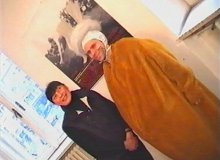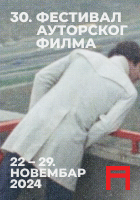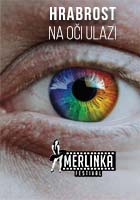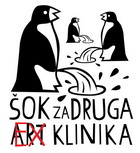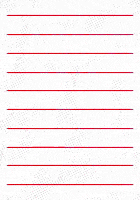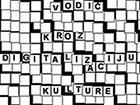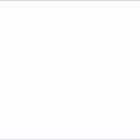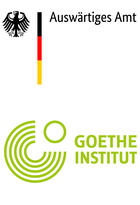Support in Action
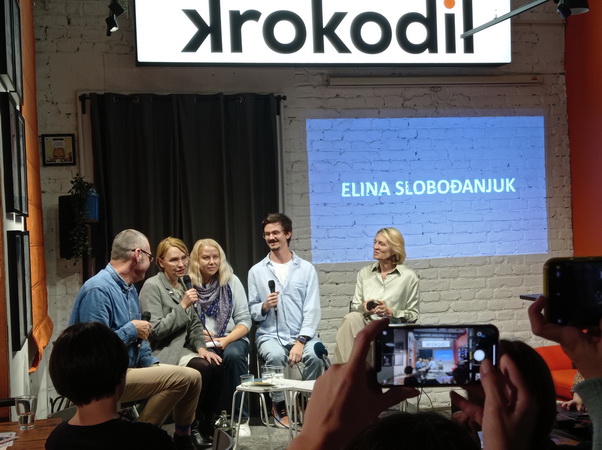
The Crocodile Association is one of the few organizations in Serbia, and in the region, which actively participated in supporting the citizens of Ukraine in wartime conditions - both by delivering aid for premature babies in Kharkiv, and by redirecting the residential program for literary creators from Ukraine, but also by making the domestic public aware of that crisis - where, paradoxically, the most problems are.
The Crocodile team, led by Vladimir Arsenijević, personally delivered the collected humanitarian aid to the Perinatal Center in Kharkiv at the beginning of last summer. They traveled a total of about 2,200 kilometers - first 800 to Uzhgorod, and then 1,400 to Kharkiv.
It was the help in the form of respirators for babies weighing less than one kilogram, food and diapers, also for premature children. Additional aid was collected by the residents of Uzhgorod, and it was transported to Kharkiv in two vehicles provided by the Committee for Medical Aid of the Transcarpathian Region, said Arsenijević at the Crocodile Center for Literature, presenting the program of emergency residencies for Ukrainian writers, as well as the first guests - Elina Slobodianiuk and Mark Livin.
"Ukraine is a huge country, I think that awareness does not yet exist in Serbia", said Arsenijević, who published on social networks in June the course of the entire undertaking, the problems at the borders and the final handing over of aid, otherwise collected on the basis of Crododile's public call to all those who could join the humanitarian campaign and show empathy and solidarity with the innocent victims of war.
"Thus, we accomplished our mission and somehow tried to prove to ourselves first of all that it is possible to organize this kind of help, that it is possible to do at least one part without infrastructural power to make life easier for people who find themselves in such circumstances. What we were guided by and what we also discussed there, as well as with our guests here, is the situation in Serbia and the attitude towards aggression in Ukraine. We are trying to find out why it is the way it is," said Arsenijević, recalling that Crocodile, after delivering humanitarian aid, organized several more events at its center, as well as a conversation with Ukrainian writer and translator Andrij Ljubka, who was also a great support when delivering aid to Kharkiv. One of the debates of the 14th Crocodile Festival, held in Belgrade and Novi Sad in mid-June, was also dedicated to the war in Ukraine, and Darina Shevchenko from Kyev Independent was among the participants.
On the occasion of the Russian invasion of Ukraine, the Crocodile also launched the Spaces of Freedom program, within which it organizes a Project of urgent residential programs for literary creators from Ukraine, and the first of them arrived recently - historian, author and polytechnologist Dr. Elina Slobodianiuk, who is considered the originator of copywriting in the post-Soviet space and in Eastern Europe, and journalist and writer Mark Livin, co-founder of the portal The Village Ukraine and author of the psychology podcast "Простыми словами" (In Simple Words).
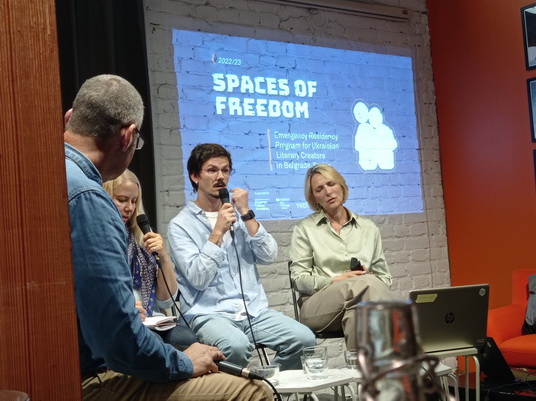
Mark Livin, photo: VM
"We took advantage of the opportunity that the European Cultural Foundation announced a quick competition for cultural activities that involve exchange with Ukraine, and we decided to dedicate our residency program, which we have been running continuously since 2012, to Ukrainian authors - not only writers, but also literary creators, among whom there are also prose writers, and poets, translators, editors, essayists, columnists, singer-songwriters, rappers... At first we thought that our partner in this Project would be the Ukrainian PEN Center. We met with them in the famous "Slovo" building in Kharkiv, however, just when we were announcing the competition, that stupid thing happened in Kosovo with license plates and it scared our possible partners in Ukraine and they withdrew from the Project", said Arsenijević, adding that, regardless, with the help of the people who participated in the working group and the jury of the "Spaces of Freedom" Project, namely the Ukrainian writer and translator Andrij Ljubka and Ana Tatarenko, the translator who signed the big number of translations of works of Serbian literature into the Ukrainian language, and writers Ivana Bodrožić and Ana Bastašić, managed to reach a large number of literary creators and received a phenomenal response on the basis of which they made their choice.
The residency program started in October, has been lasting for eight months - until May 2023, and there will be two guests each month, which means a total of 16 residency months within eight calendar months, Arsenijević stated.
One of the problems regarding the hosting of Ukrainian literary creators is the permission to leave the country, which is a special challenge when it comes to military conscripts, men. "Until May, we will have a very interesting collection of different guests who will greatly contribute to balancing the image of Ukraine a bit and getting a slightly more beautiful shape", said Arsenijević, announcing, after the stay of Marko Livin and Elina Slobodjanyuk, several more authors, historians, translators, and writers.
In addition to providing aid for the Perinatal Center in Kharkiv and emergency residencies for Ukrainian literary creators, the Crocodile tries to promote empathy towards the suffering of citizens in Ukraine and actions in public space.
So recently, with the help of two street art artists, a mural dedicated to the poet Lesya Ukrainka (1871-1913) was created on the wall in front of the Crocodile Center for Literature - on the Small Steps near Branko’s Bridge. Along with her image, her verses in Ukrainian and Serbian were written on a yellow-blue background, but shortly after, however, it suffered vandalism.
"Should we be surprised that not even a week has passed and that mural has been vandalized - someone threw black paint on the verses in Ukrainian. That mural is really impressive and the whole position of the wall is phenomenal, the view from there. There you have practically an entire amphitheater near the former railway station from where you can see that mural. The power that the mural projects is distinct, and it obviously bothered the haters of anything that seems like normality, I must say. It is simply phenomenal that on the one hand - how this fight is going - you have murals dedicated to (Vladimir) Putin, or you have this whole rush of visual pollution on the walls of Belgrade with the image of Ratko Mladić, which glorifies war criminals and writes that Ratko Mladić is a Serbian hero, and on the other hand, you put the image of a young beautiful woman, after all, a poetess from the end of the 19th century, and her verses, and then you get such a reaction that it gets destroyed," said Arsenijević.
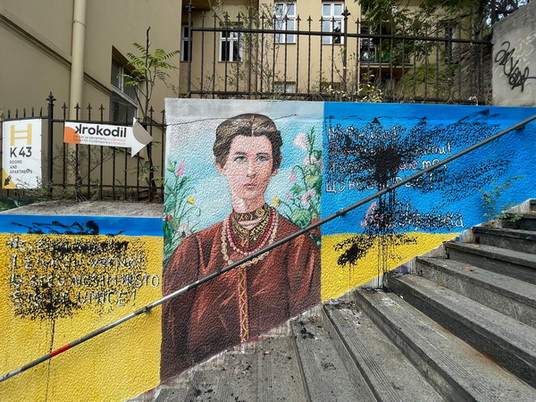
Vandalised mural, photo: Krokodil
In addition to the mural, the board at the entrance to the Crocodile Center for Literature was also destroyed these days, as well as the board saying: "Please do not throw garbage. Thank you".
"When someone breaks signs that invite people to keep the environment clean, you really have to put it in a context that is very interesting and, above all, devastating for the society we live in," stated Arsenijević.
The Crocodile, on the occasion of vandalizing the mural of Lesya Ukrainka, called on the competent institutions to react and punish all those who break the law and directly threaten public order, peace and security of citizens.
Her lines from the three-act poetic drama "Forest Song", published in 1911, are written on the mural: No, I am alive, I will live forever, I have in my heart that which does not die!
(SEEcult.org)
*Funded by the Stabilisation Fund for Culture and Education 2022 of the German Federal Foreign Office and the Goethe Institut

